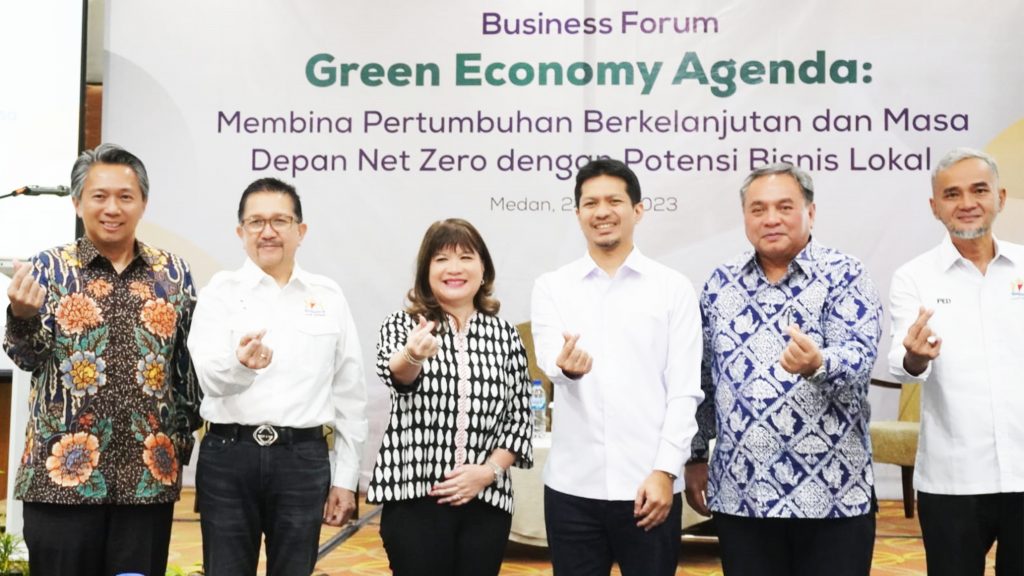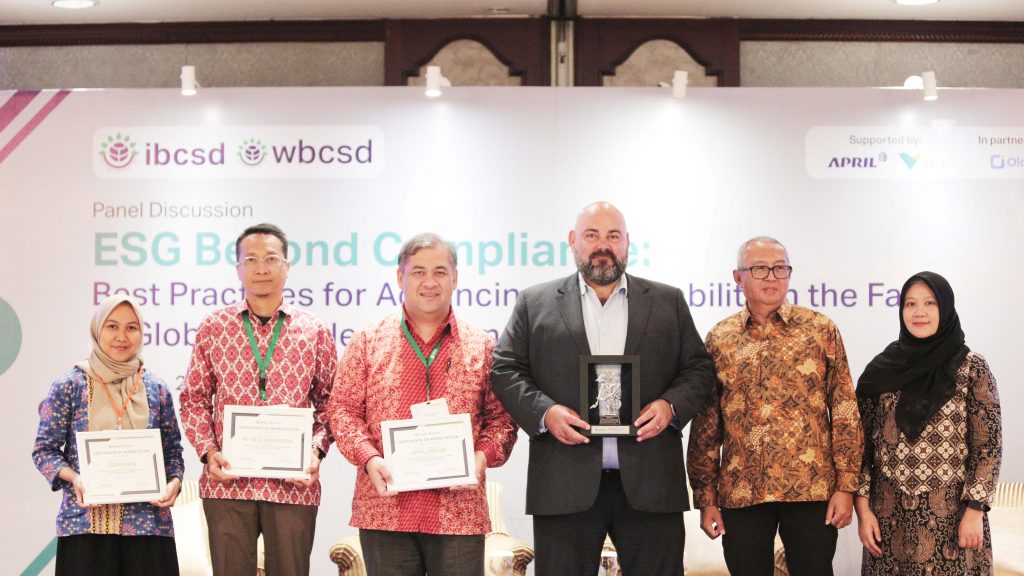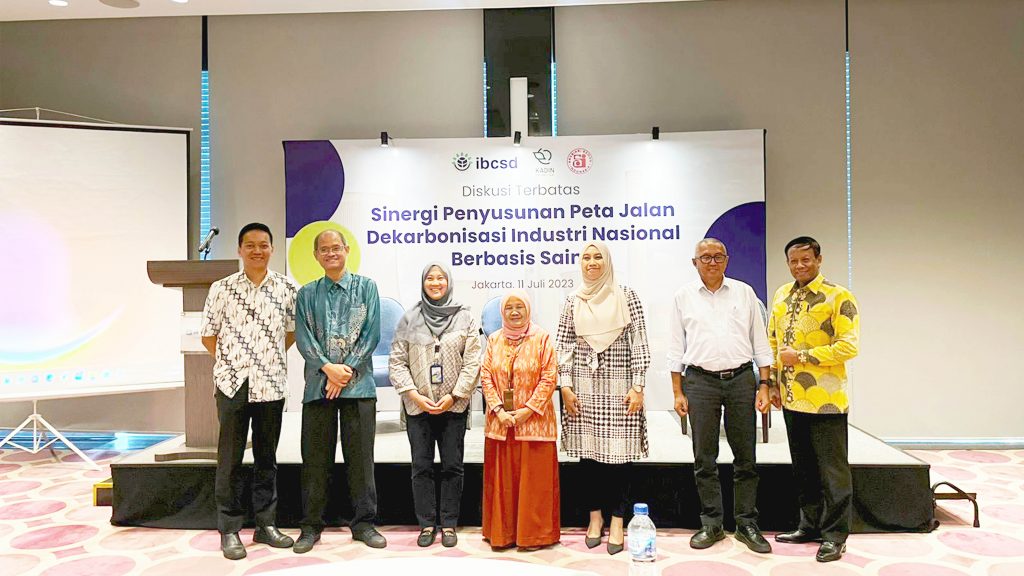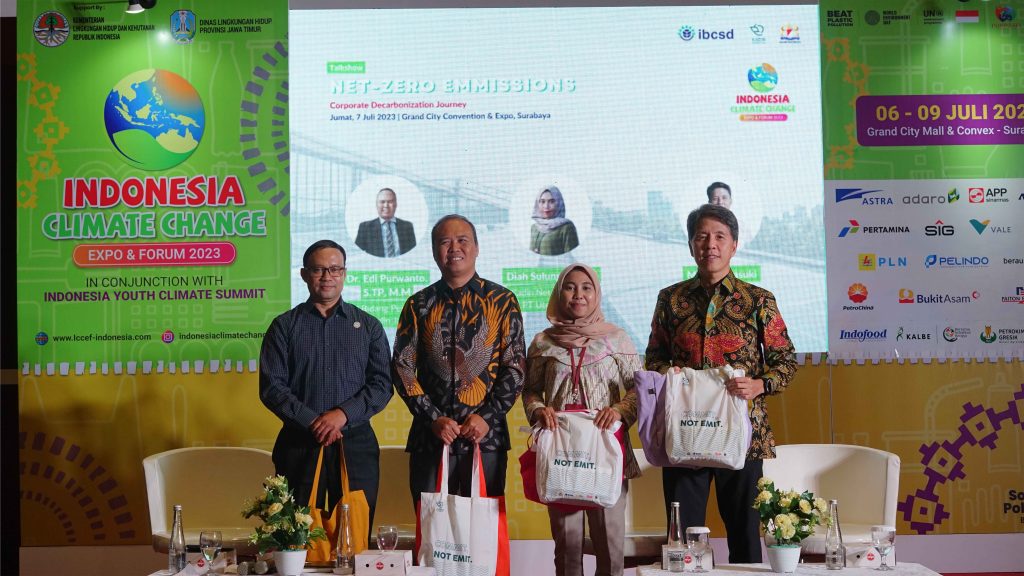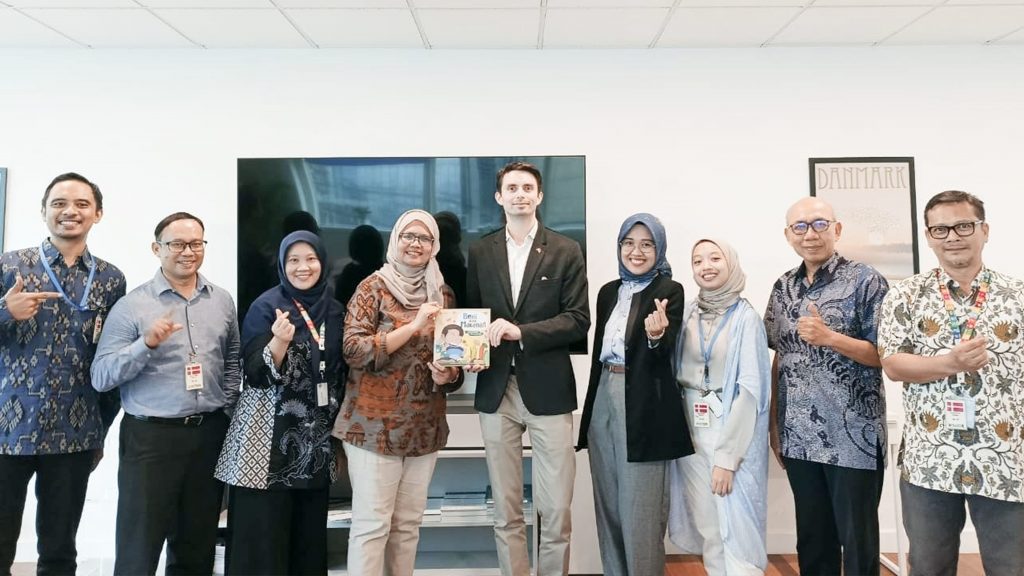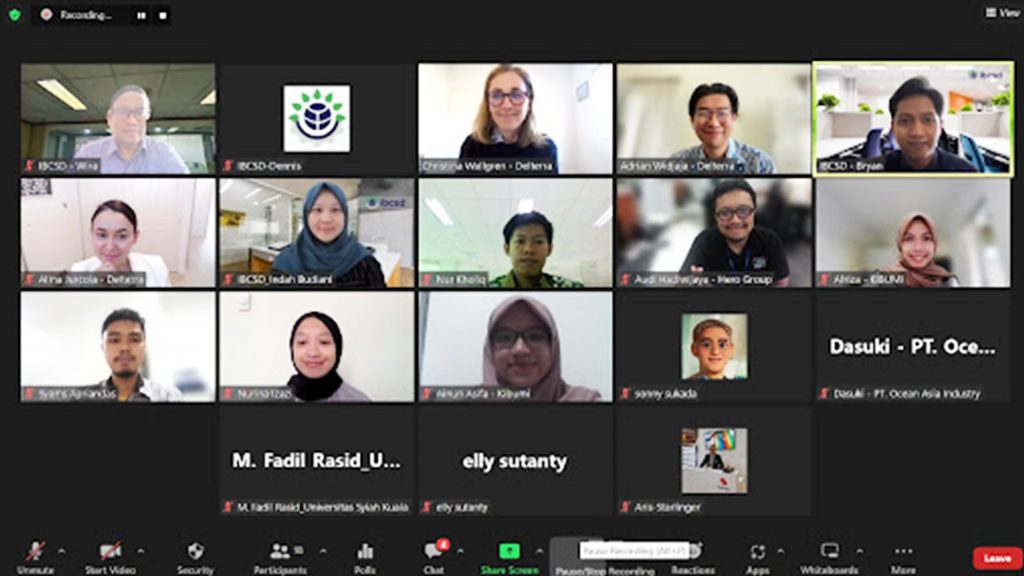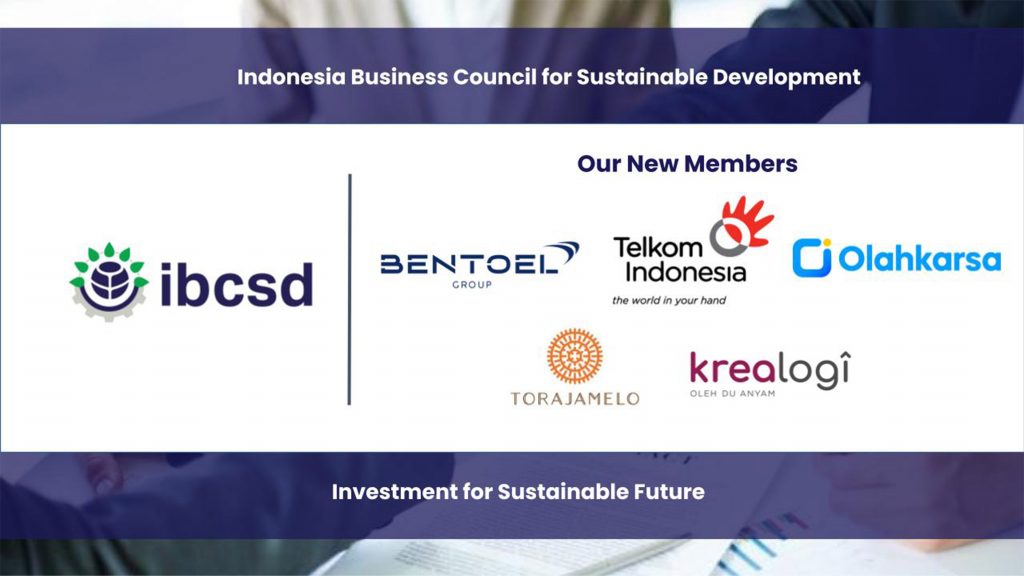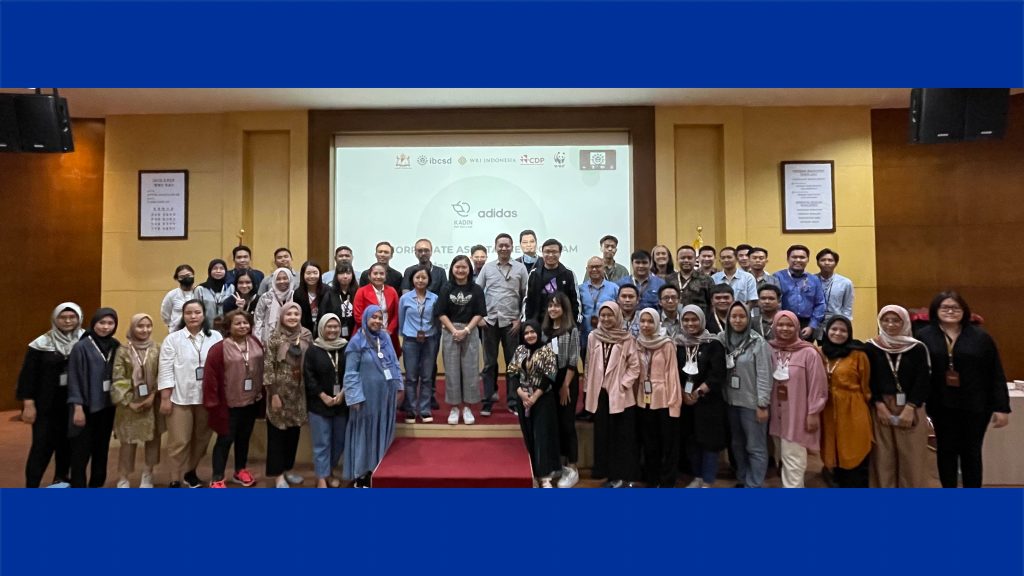The contemporary world confronts three critical global challenges: the climate emergency, loss of nature, and widening inequality. As per the UN World Population Prospects 2022, the global population is projected to reach 8 billion by 2022, surging to 8.5 billion by 2030, and 9.7 billion by 2050. These pressing issues demand urgent action to safeguard the planet, its precious resources, and the well-being of people worldwide.
President of IBCSD, Lilik Unggul Raharjo, in his opening remarks mentioned, “Unfortunately, now our world is not in a good shape; climate crisis, loss of nature, and mounting inequality, and all eyes are on the private sector. Through the implementation of ESG, now is the time the business sector shows that business can bring solutions and part of solutions”.
To add to that, in his opening remarks, Joe Phelan, Executive Director of WBCSD Asia Pacific said, “The world is pushing business to change, to be clear that businesses are working towards and have plans to become net-zero, nature positive, and contributing to greater equality.”
In recent times, a growing awareness has emerged among businesses and investors regarding the significance of sustainable and responsible corporate conduct. The adoption of ESG practices has become paramount, not only to identify and mitigate potential risks but also to create enduring value and enhance reputation and competitiveness.
Presented virtually as the keynote speaker, Dida Gardera, Special Staff for Connectivity, Service Development and Natural Resources, Coordinating Ministry for Economic Affairs. He said, “Embracing the green and blue economy is essential with integrated approaches that consider environmental, social, and economic aspects. Policy makers should prioritize sustainability, together with the private sector and other stakeholders as the engine (of the transformation).”
However, implementing ESG practices in Indonesia presents distinctive challenges. The nation not only faces climate-related risks but also confronts the peril of biodiversity loss, which can significantly impact the global economy and livelihoods. In response to these challenges, IBCSD and the WBCSD Asia Pacific Region orchestrated a panel discussion to facilitate the exchange of knowledge, experiences, and best practices for advancing sustainability in Indonesia’s business landscape.
The event featured an esteemed lineup of speakers, representing prominent experts and leaders from various industries, who provided invaluable insights on Environmental, Social, and Governance (ESG) practices. The distinguished speakers and moderators at the panel discussion included Celine Le Goazigo, Senior Manager of Energy WBCSD; Irene Martinetti, Manager of Circular Economy WBCSD; Marcus Burke, Manager of Equity Action WBCSD; Chakapong Yingwattanathaworn, CEO PT SCG Indonesia; Dharsono Hartono, CEO PT Rimba Makmur Utama; Suparam Bayu Aji, Head of Communication PT Vale Indonesia; Nadine Zamira Syarief, Sustainability and ESG Manager APRIL Group; Firmans Nur Gafi, Head of Public Segment Signify Indonesia; Oepoyo Prakoso, Corporate Environment & Sustainability Head PT Solusi Bangun Indonesia; Firman Dharmawan, Senior Manager Corporate Sustainability & Risks Management PT Medco Energi Internasional Tbk; Maria Dian Nurani, ISSP General Secretary; and Retno Ayudiati, Sustainability Lead PT HM Sampoerna.
The panelists brought a wealth of expertise related to ESG, with a specific focus on net zero commitment and accountability framework, unlocking circular potential for creating a minimum environmental footprint while building future-proof businesses, and managing social performance through addressing inequality.
Throughout the event, these thought leaders engaged in insightful discussions, sharing their experiences, and highlighting best practices to address pressing global challenges such as the climate emergency, loss of nature, and growing inequality. They emphasized the significance of adopting sustainable and responsible corporate practices in Indonesia, considering the unique environmental and social risks the country faces.
The focal points of the panel discussion comprised accountability in achieving net-zero commitments, fostering a circular economy, and addressing inequality. Through engaging discussions and the sharing of insights, participants had the opportunity to gain a deeper comprehension of the urgency for transformative changes in existing systems. By surpassing minimal regulatory requirements, businesses can forge long-term value and sustainability based on novel premises and sources of value.
The primary objective of this panel discussion was to foster collaboration among attendees and promote the successful implementation of ESG practices in Indonesia, leading to sustainable businesses that effectively address global challenges. Business leaders, sustainability professionals, and stakeholders were invited to partake in this enriching and thought-provoking event.
In her closing remarks, Shinta Kamdani, IBCSD Honorary Trustee said, “The discussion that we have today hopefully can remind us again, how we should keep moving onward towards a sustainable future”. Shinta concluded the importance for business leaders to implement ESG. “…and I believe, IBCSD, with its network, still can be your resource and support for you in striving to implement your ESG commitment and reach your sustainability goals,” she continued.
